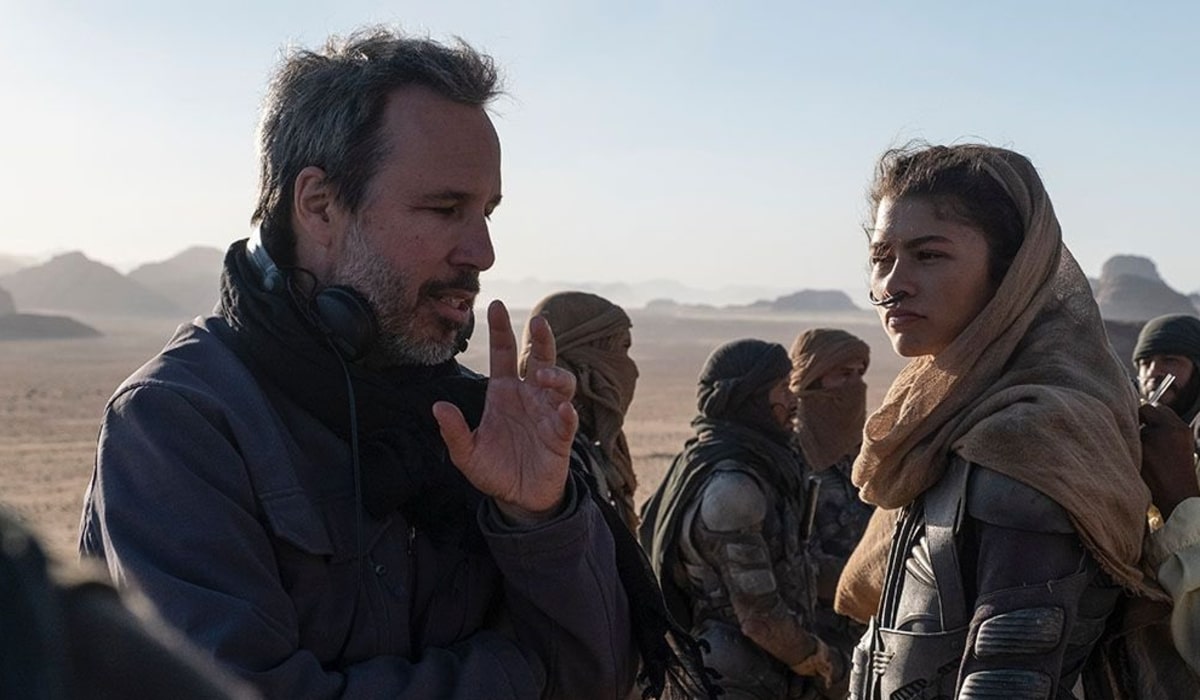“Dune: Part Two” continues Denis Villeneuve’s ambitious vision for the epic saga, signaling a surprising departure from Frank Herbert’s original novels. While the first film faithfully adapted Herbert’s complex world, the sequel promises a narrative shift that diverges from the source material. With Villeneuve aiming to conclude Paul Atreides’ arc with “Dune Messiah,” the stage is set for a thrilling continuation of Paul’s journey from nobility to nomad on the desert planet of Arrakis.

The Timeline Shift: A New Approach to Herbert’s Universe
“Dune: Part Two” is set to pick up immediately after the events of the first film, eschewing the two-year gap Herbert wrote into the series. This decision marks a significant departure from the books, signaling Villeneuve’s intent to streamline the epic narrative for the big screen. “It would make sense to me to finish Paul Atreides’ arc with ‘Dune Messiah,’ the second book, and make a trilogy,” Villeneuve explained in a recent interview with Reuters.
This approach not only tightens the sprawling saga but also aligns with the director’s vision of a trilogy that captures the essence of Herbert’s universe while delivering a cohesive cinematic experience.

Crafting a Visual Feast: The Cinematic Experience of “Dune: Part Two”
Villeneuve’s commitment to creating an immersive experience for moviegoers remains unwavering. With “Dune: Part Two,” the director promises a film that is both a visual marvel and a narrative powerhouse. “We put everything out there,” Villeneuve stated, emphasizing the team’s effort to ensure the sequel surpasses its predecessor in both scale and spectacle.
The director encourages audiences to experience the film in theaters, where the full magnitude of Arrakis’s desolate beauty and the intensifying drama of Paul’s journey can be fully appreciated.
Dune 2 is Denis Villeneuve's The Empire Strikes Back.
– Christopher Nolan. pic.twitter.com/BOjelFf5j5
— Films and Stuffs (@filmsandstuffs) February 4, 2024
The Return to Arrakis: Setting the Stage for a Trilogy’s Conclusion
Despite the timeline alterations, Villeneuve hints at a return to the familiar dunes of Arrakis in the trilogy’s final installment. This move not only pays homage to Herbert’s original setting but also offers the potential to explore new dimensions of the planet’s intricate political and ecological systems. The director’s “first thought” of making a trilogy underscores his dedication to honoring the source material while navigating the challenges of adapting Herbert’s dense narrative for a new generation of fans.

Anticipation Builds for Villeneuve’s Epic Finale
Denis Villeneuve’s “Dune” has reignited interest in Frank Herbert’s classic sci-fi saga, captivating audiences with its breathtaking visuals and compelling storytelling. As “Dune: Part Two” prepares to defy expectations with its timeline shift and narrative focus, the anticipation for Villeneuve’s rendition of “Dune Messiah” grows.
Fans of the series and newcomers alike can look forward to a trilogy that promises to be a landmark in cinematic science fiction, blending fidelity to Herbert’s vision with Villeneuve’s renowned directorial prowess. The journey through the deserts of Arrakis is far from over, and the saga of Paul Atreides is set to reach new heights as “Dune: Part Two” continues to unfold on the silver screen.










